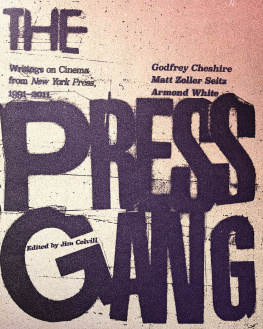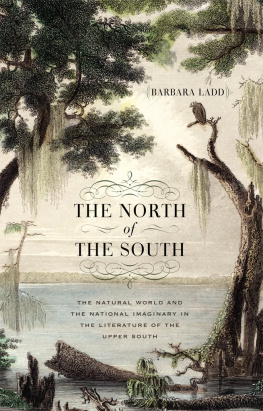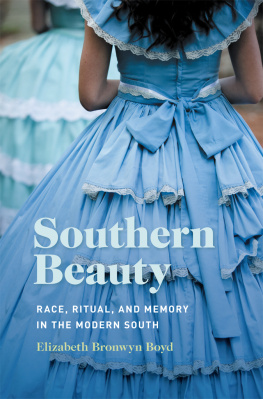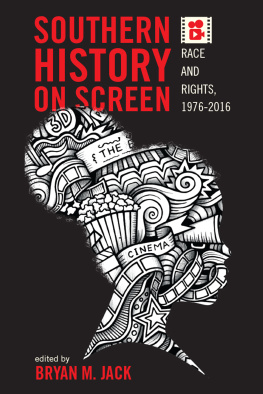ESSAY
Personal in My Memory
The South in Popular Film
by some of our favorite writers and filmmakers
with an introduction by Godfrey Cheshire
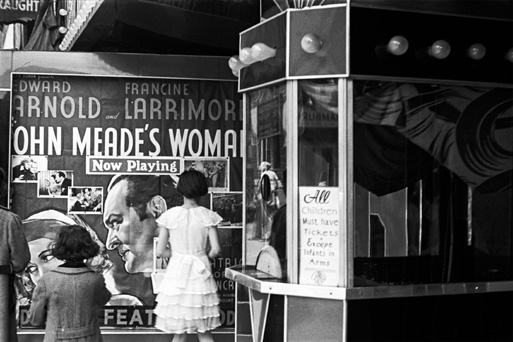
We have two imaginary kingdoms. One, the South, exists primarily in song, oral traditions and folkways, native art and literature. The other, Hollywood, creates mass- produced audiovisual entertainments for American and world audiences, and develops its own mythology. Moviegoers at a D.C. theater, 1937, photographed by John Vachon, courtesy of the Collections of the Library of Congress.
If youre ever inclined to doubt the importance of the South to American moviesor vice versaconsider that David Wark Griffiths The Birth of a Nation (1915), the foundation stone upon which the whole edifice of the American movie industry is built, and itself still perhaps (depending on whose figures you believe) the most successful film ever made, is a radically atavistic epic purporting to explain the entire sweep of southern history. A key document of southern cinematic literature, it is set mainly in the South, and was directed, brilliantly, by one native southerner (from the writings of another, novelist-racialist Thomas Dixon Jr.), but was filmed in a place whose fame, at the time, was yet to come: Hollywood, California.
Thereafter, we have two imaginary kingdoms. One, the South, exists primarily in song, oral traditions and folkways, native art and literature. The other, Hollywood, creates mass-produced audiovisual entertainments for American and world audiences, and develops its own mythology. Occasionally, sometimes frequently, the two kingdoms interact, but their relations are uneasy because they are not equals. Hollywood, the colonizer, is happy to exploit the tales, myths, culture, and sometimes the great talents (see: W. Faulkner, screenwriter) of the South, but invariably imposes its own language and concerns on the southern raw material, feeling no particular obligation to get it right. For its part, the South nervously contemplates the resulting distortions of its self-image(s), though it will swoon (along with the rest of the world) at the appearance of a romantic, Hollywoodized South, such as that in David O. Selznicks 1939 production of Gone With the Wind (another film with a claim to be historys highest-grosser).
Among moviegoers, there are as many Souths as there are individual sensibilities to discern them in the theaters darkness. Nevertheless, certain patterns become evident. For some viewers, as the essays below indicate, the films that impress derive from valued southern literary sources; here, Hollywoods translators have presumably not distorted those sources too greatly. Two writers, on the other hand, find wonderment in films that come from pre-existing southern sources, a pop song and a best-selling novel, precisely because of the way cinemas magic has transformed them; here, Hollywood is an unwitting agent of personal revelation. For one northern-born critic, theres a late-dawning realization of how the movies confuse the real South and its fictional apparitions; he confesses that two Hollywood films have long made him avoid the region. And as if to prove that any southern film is ultimately personal, one writer names a quintessential New York-set film simply because it offers a few glimpses of Florida, a place that many southerners dont even consider part of the South.
Finally, theres an essay that points us toward the startling notion that, while most cinematic visions of the South from The Birth of a Nation till now have come to us filtered through the aesthetic/industrial lenses of Hollywood, they dont have to be. From the time they began appearing the 1970s, the documentaries of North Carolina-born Ross McElwee have posited and exemplified an idea of film as an equivalent of southern literature: personal, idiomatic, made from a natives point of view, untouched by Hollywood motives or money. If many of the films discussed here belong to a past where movies in general were the property of Hollywood, it could be that McElwees work points toward a future in which some visions of the South can genuinely be called southern films.
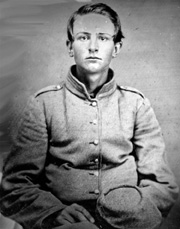
Alice Walker on Cold Mountain: I was probably the last person on earth to see the movie Cold Mountain, but I finally saw it and valued it: it cured me of my inability to feel compassion for the soldiers who fought on the Confederate side in the Civil War.
ALICE WALKER ON COLD MOUNTAIN
I was probably the last person on earth to see the movie Cold Mountain, but I finally saw it and valued it for three reasons: it cured me of my inability to feel compassion for the soldiers who fought on the Confederate side in the Civil War; it made one young soldier come vulnerably alive, showing how important it was in those days for a family during winter to have a hog to kill and eat (they were like my own family); and it showed a wise woman living in the woods with her goats and how she killed one of them while its head was in her lap and she was stroking and lovingly murmuring to it. She then cooked some of the meat for the wounded soldier to eat. That depiction, of how killing an animal might be done, is one I appreciate because it reminds humans that though we must eat other living beings to live, we do not have to withdraw our affection when it is most needed and abandon our sustainers in their moment of transition.
Renowned author, essayist, and poet Alice Walker is the author, most recently, of a collection of poems,Hard Times Require Furious Dancing (2010), and the memoir, The Chicken Chronicles(2011). This remembrance is adapted from a post on her blog, Alice Walkers Garden, www.alicewalkersgarden.com, reprinted with permission.
ALLAN GURGANUS ON SHERMANS MARCH
Hollywood finds the South uncontainable in ninety minutes. All trees get draped with plastic Spanish moss. All actors rustic accents make our teeth hurt. (The worst twang ever? I nominate Jane Fondas in Hurry, Sundown. Praline-batter producing sugar-shock.)
I prefer my bourbon made in Kentucky, then served straight-up. Ross McElwees Shermans March (1986) is a home-brewed masterpiece, time capsule-worthy. Its southern accents all ring genuine. Both the American Civil War and this film might be characterized: a point of view in rebellion against itself.
When the true history of documentary film is written, McElwees centrality will come clear. Director Michael Moore has said, I did not go to film school. I went to Ross McElwee films and stayed all day.
Gone With the Wind was shot in California by Californians and starred a lovely Englishwoman. Shermans March is made in the South by an upper-middle-class Carolinian observing flawed similar Carolinians. That makes it so thoroughly Carolinian it first gets scary then hilarious. McElwee is not James Ageedressed in rags while spying on the rural poormoved at his Shakespearean largesse over their ringworm. No, McElwee knows: white people rich enough, if filmed at home by relatives, will get on camera and say exactly what they think. Terrifying. You have to have parents like these to truly understand.
McElwees film manages to out-Gothicize any strangers comic horror film about the South.


